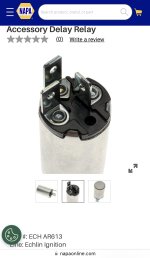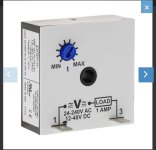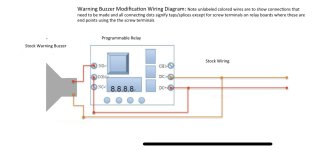Is there supposed to a capacitor for the alarm when the key is turned on, and engine isn’t running? I understand why the alarm is going off - no oil pressure when it’s not running. As soon as the engine starts the alarm turns off.
Is there a capacitor that is supposed to silence the alarm for a period of time when the key is first turned to the on position?
Engine SN: 0W324301. 4.3L TKS
Is there a capacitor that is supposed to silence the alarm for a period of time when the key is first turned to the on position?
Engine SN: 0W324301. 4.3L TKS






















